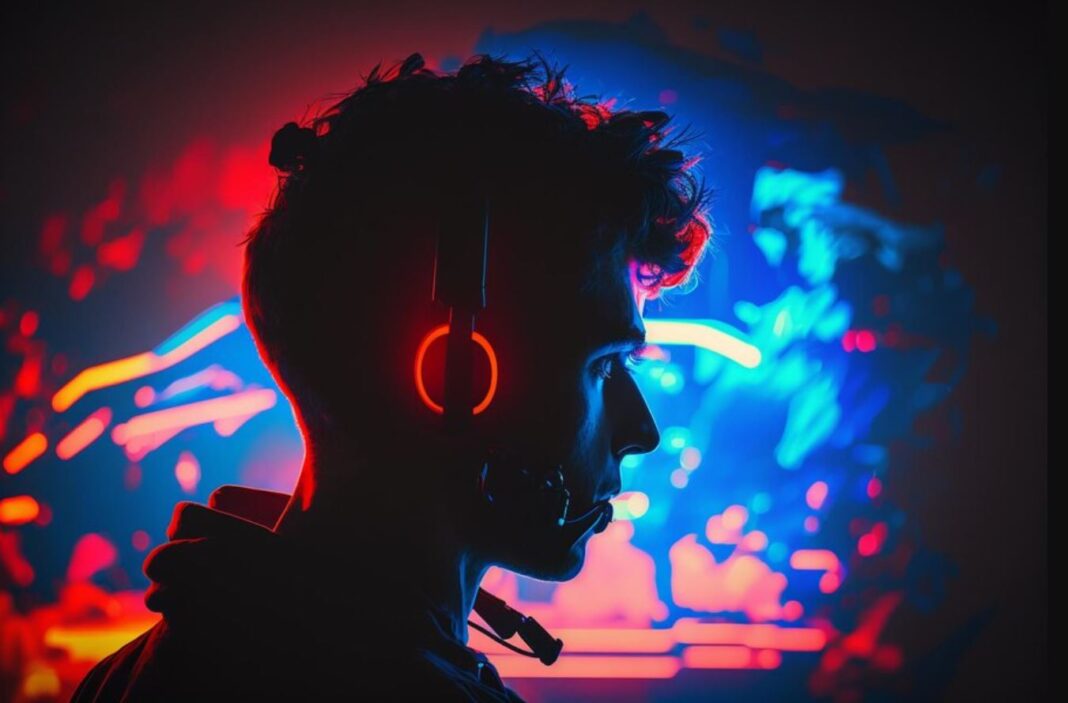Did you know that as per the latest survey, around 65% of generative AI users are Millennials or Gen Z, and 72% are employed?
That is true and AI is really changing the way every industry has been working!
When you think of AI, do you envision a robot playing a piano concerto?
Maybe not yet, but the world of artificial intelligence is making waves in the music industry, and it’s not just about replacing musicians.
Generative AI is redefining the creative process, opening new doors for artists and composers.
In this blog, we’ll dive into the harmonious realm of Generative AI for music generation and explore how it’s changing the way we create and experience music.
AI as the Modern Maestro
Imagine having your personal maestro who can compose music on demand, understand your creative vision, and create melodies that resonate with your emotions. Generative AI is rapidly evolving to do just that. It’s like having a musical genius living in your computer, ready to assist you anytime.
How Does It Work?
Before we dive deeper, let’s unpack how Generative AI works. At the heart of this technology are neural networks, specifically Recurrent Neural Networks (RNNs) and their cousins like Long Short-Term Memory (LSTM) networks.
These networks are trained on vast amounts of musical data, learning the patterns, structures, and nuances that make up music.
Much like a chef who knows the perfect recipe, AI can generate music by predicting the next note in a sequence based on what it has learned. It’s the essence of machine learning—predictive creativity.
Creativity Meets AI
One might ask, “Can AI really be creative?” While it can’t experience emotions or have a muse, AI can certainly mimic creativity with astonishing results.
AI generates music not by feeling but by mimicking patterns and styles it has learned. It’s the fusion of art and technology, and the results can be awe-inspiring!
AI’s Compositional Tools
Generative AI for music generation offers a plethora of compositional tools. Here are a few that are reshaping the industry:
1. Melody Generation:
Whether you need a catchy tune for a commercial or a soothing melody for a movie soundtrack, AI can create it.
Just input the mood, tempo, and instruments you desire, and the AI will compose a melody that fits the bill.
2. Style Transfer:
Ever wondered how Beethoven’s “Moonlight Sonata” would sound if it were composed by Mozart? AI can do that too.
Style transfer is a technique that allows you to morph one musical style into another while preserving the original composition’s structure.
3. Collaborative Composition:
AI can be your collaborative partner. You can create the backbone of a composition, and then let the AI suggest variations or harmonies, sparking new creative directions.
4. Real-time Jamming:
Some AI systems can even jam with you in real-time, adapting to your playing and creating accompanying music on the fly. It’s like having an AI band member who never misses a beat.
<<Also Read: From Concept To Reality: An In-Depth Exploration Of AI Architect’s Design Process>>
AI in Music Production
Generative AI isn’t just about composing music; it’s also changing the way we produce it. Here’s how:
1. Speeding up the Process:
Traditional music production can be time-consuming, but AI can generate ideas in seconds. This can be a game-changer in a fast-paced industry.
2. Personalized Soundtracks:
AI can tailor music to match the pace and tone of video content, making it perfect for commercials, movies, and video games. No more generic soundtracks!
3. Discovering Hidden Gems:
AI can sift through enormous music catalogs to find hidden gems or inspire new compositions. It’s like having a music archaeologist in your studio.
4. Remixing and Sampling:
Musicians are increasingly using AI to remix and sample existing tracks, creating fresh interpretations of classic tunes.
The Ethical Dilemma
While AI’s role in music creation is exciting, it raises ethical questions. Who owns the rights to AI-generated music? How does AI impact human musicians and composers?
These are complex issues that need careful consideration. AI’s influence on the creative process doesn’t come without its challenges.
The Human Touch
AI may compose music, but it lacks the human touch and emotional depth. Music is a powerful form of expression, often rooted in human experiences and emotions.
While AI can create melodies, it can’t tell stories through music or pour its heart into a composition.
The Future
Generative AI for music generation is still in its early stages, and its full potential is yet to be realized.
We can anticipate exciting developments such as AI-generated music concerts, and personalized soundtracks for everyday life.
And even new musical genres born from AI experimentation.
<<Also Read: Exploring the Role of Generative AI in WhatsApp>>
Conclusion
In the symphony of technology and creativity, Generative AI for music generation is composing a beautiful new movement. It’s a tool that empowers musicians and composers, speeds up music production, and introduces novel possibilities.
While it’s not replacing the human artist, it’s undoubtedly expanding the horizons of music. The future of music will be a harmonious blend of human emotion and AI’s predictive creativity.
So, whether you’re a musician, composer, or music enthusiast, be prepared to embrace the machine maestro, and together, let’s explore the limitless potential of AI in the world of music.
The music industry is changing, and with AI at our side, we’re set to experience a symphony of innovation.



